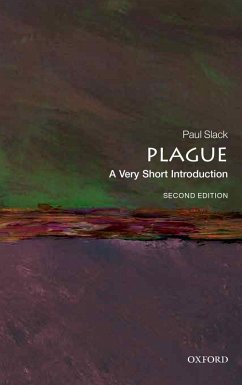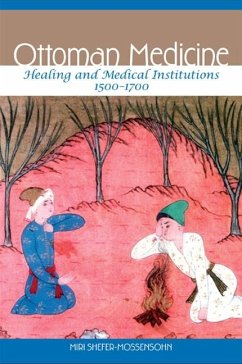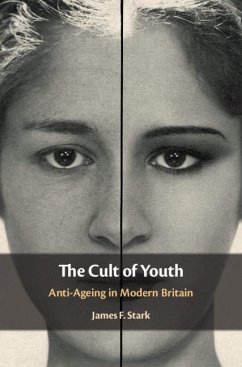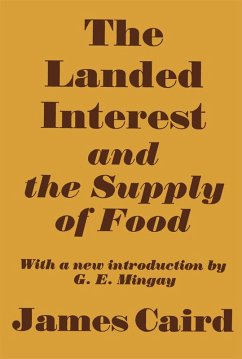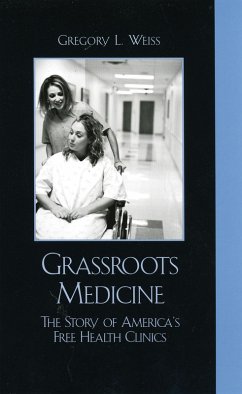
The Black Death in the Middle East (eBook, PDF)
Versandkostenfrei!
Sofort per Download lieferbar
50,95 €
inkl. MwSt.
Weitere Ausgaben:

PAYBACK Punkte
25 °P sammeln!
In the middle of the fourteenth century a devastating epidemic of plague, commonly known in European history as the "Black Death," swept over the Eurasian continent. This book, based principally on Arabic sources, establishes the means of transmission and the chronology of the plague pandemic's advance through the Middle East.The prolonged reduction of population that began with the Black Death was of fundamental significance to the social and economic history of Egypt and Syria in the later Middle Ages. The epidemic's spread suggests a remarkable destruction of human life in the fourteenth ce...
In the middle of the fourteenth century a devastating epidemic of plague, commonly known in European history as the "Black Death," swept over the Eurasian continent. This book, based principally on Arabic sources, establishes the means of transmission and the chronology of the plague pandemic's advance through the Middle East.
The prolonged reduction of population that began with the Black Death was of fundamental significance to the social and economic history of Egypt and Syria in the later Middle Ages. The epidemic's spread suggests a remarkable destruction of human life in the fourteenth century, and a series of plague recurrences appreciably slowed population growth in the following century and a half, impoverishing Middle Eastern society. Social reactions illustrate the strength of traditional Muslim values and practices, social organization, and cohesiveness. The sudden demographic decline brought about long-term as well as immediate economic adjustments in land values, salaries, and commerce.
Michael W. Dols is Assistant Professor of History at California State University, Hayward.
Originally published in 1977.
The Princeton Legacy Library uses the latest print-on-demand technology to again make available previously out-of-print books from the distinguished backlist of Princeton University Press. These editions preserve the original texts of these important books while presenting them in durable paperback and hardcover editions. The goal of the Princeton Legacy Library is to vastly increase access to the rich scholarly heritage found in the thousands of books published by Princeton University Press since its founding in 1905.
The prolonged reduction of population that began with the Black Death was of fundamental significance to the social and economic history of Egypt and Syria in the later Middle Ages. The epidemic's spread suggests a remarkable destruction of human life in the fourteenth century, and a series of plague recurrences appreciably slowed population growth in the following century and a half, impoverishing Middle Eastern society. Social reactions illustrate the strength of traditional Muslim values and practices, social organization, and cohesiveness. The sudden demographic decline brought about long-term as well as immediate economic adjustments in land values, salaries, and commerce.
Michael W. Dols is Assistant Professor of History at California State University, Hayward.
Originally published in 1977.
The Princeton Legacy Library uses the latest print-on-demand technology to again make available previously out-of-print books from the distinguished backlist of Princeton University Press. These editions preserve the original texts of these important books while presenting them in durable paperback and hardcover editions. The goal of the Princeton Legacy Library is to vastly increase access to the rich scholarly heritage found in the thousands of books published by Princeton University Press since its founding in 1905.
Dieser Download kann aus rechtlichen Gründen nur mit Rechnungsadresse in A, D ausgeliefert werden.




